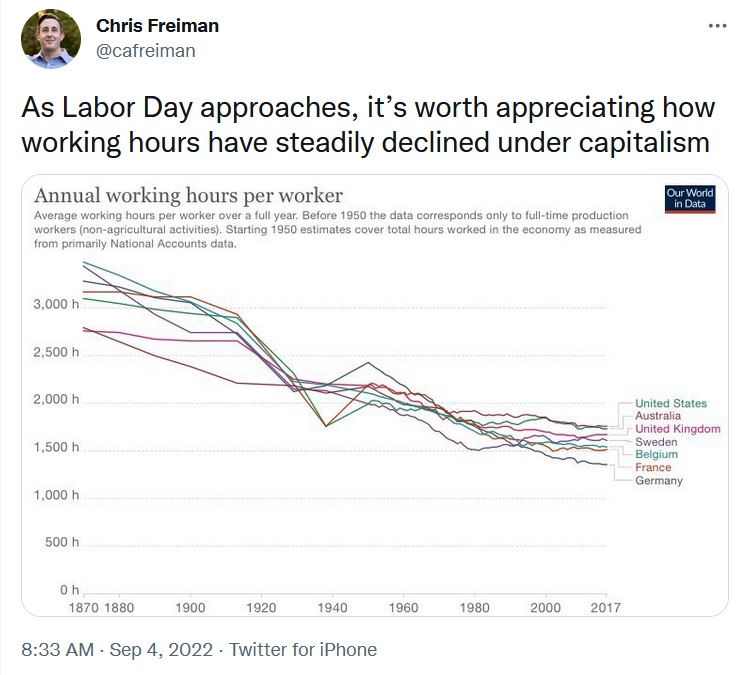Last week, I shared some great information from Superabundance, a new book that shows how economic liberty has made us much better off, as measured by how much more we can buy per hour worked.
Today, let’s look at a related benefit of capitalism, which is that we don’t have to work nearly as many hours to achieve high living standards.
Here’s a tweet from Chris Freiman, a professor of philosophy at William & Mary University. As you can see, people in market-oriented nations work far fewer hours than they did 150 years ago. In some cases, hours worked per year have dropped by more than 50 percent.
When economists study these issues, they generally say the willingness of people to supply labor (whether to work and how much to work) depends on compensation. In other words, people give up leisure because they want money so they can consume.
But that choice can be complicated. It is governed by an “income effect” and a “substitution effect.”
For those who want to learn the economics, here’s a good description from the University of Washington.
- Substitution effect of an increase in the real wage, w. As w increases, income increases by working more and a worker substitutes work for leisure so labor supply, NS, increases.
- Income effect of an increase in the real wage, w. As w increases, working the same number of hours still gives an increase in income so that a worker may decrease the number of hours worked and maintain the previous level of income so labor supply, NS, decreases.
Simply stated, people like both income and leisure. So we all make choices about how much to work depending on our preferences and tradeoffs.
However, that decision can be influenced by economic policy. If there are generous government handouts, for instance, people may decide to work fewer hours. Or not at all.
And a decision to work only a small amount may be a result of high implicit marginal tax rates that are embedded in redistribution programs.
Taxes also play a big role. High marginal tax rates can discourage labor supply, which helps to explain why people work more hours in the United States than in Europe.
And that’s true even though Americans are much richer, thus showing how the substitution effect can outweigh the income effect. At least in the short run.
In the long run, the above chart shows how the income effect is dominant.
But let’s forget about economic jargon. What the chart really shows is how free markets enable societies to generate so much income that we can enjoy better lives in exchange for far less effort.


No comments:
Post a Comment